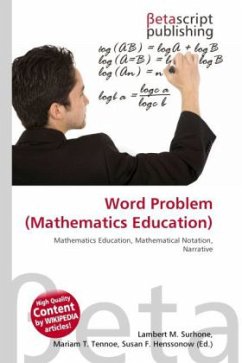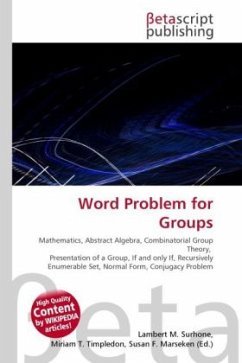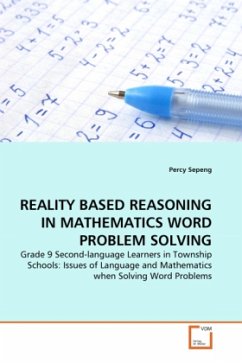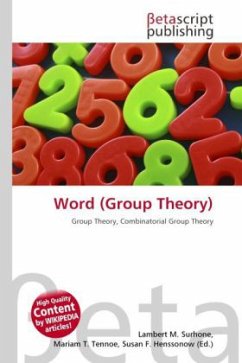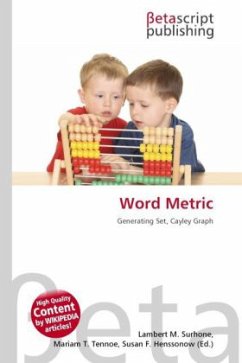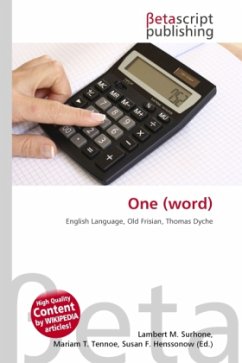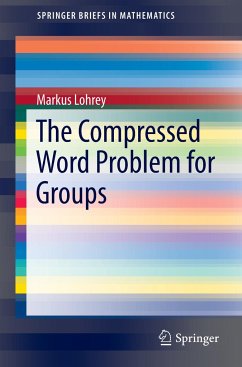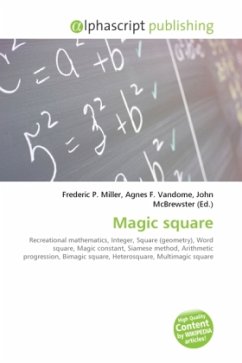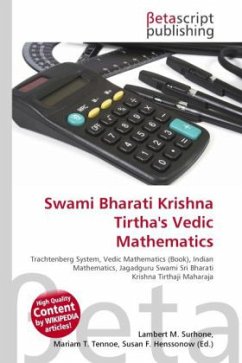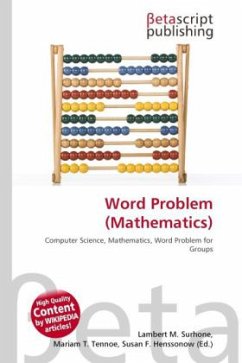
Word Problem (Mathematics)
Versandkostenfrei!
Versandfertig in 6-10 Tagen
30,99 €
inkl. MwSt.

PAYBACK Punkte
15 °P sammeln!
High Quality Content by WIKIPEDIA articles! In mathematics and computer science, a word problem for a set S with respect to a system of finite encodings of its elements is the algorithmic problem of deciding whether two given representatives represent the same element of the set. The problem is commonly encountered in abstract algebra, where given a presentation of an algebraic structure by generators and relators, the problem is to determine if two expressions represent the same element; a prototypical example is the word problem for groups. Less formally, the word problem in an algebra is: g...
High Quality Content by WIKIPEDIA articles! In mathematics and computer science, a word problem for a set S with respect to a system of finite encodings of its elements is the algorithmic problem of deciding whether two given representatives represent the same element of the set. The problem is commonly encountered in abstract algebra, where given a presentation of an algebraic structure by generators and relators, the problem is to determine if two expressions represent the same element; a prototypical example is the word problem for groups. Less formally, the word problem in an algebra is: given a set of identities E, and two expressions x and y, is it possible to transform x into y using the identities in E as rewriting rules in both directions? Many occasions arise in mathematics where one wishes to use a finite amount of information to describe an element of a (typically infinite) set. This issue is particularly apparent in computational mathematics. Traditional models of computation (such as the Turing machine) have storage capacity which is unbounded, so it is in principle possible to perform computations with the elements of infinite sets.



